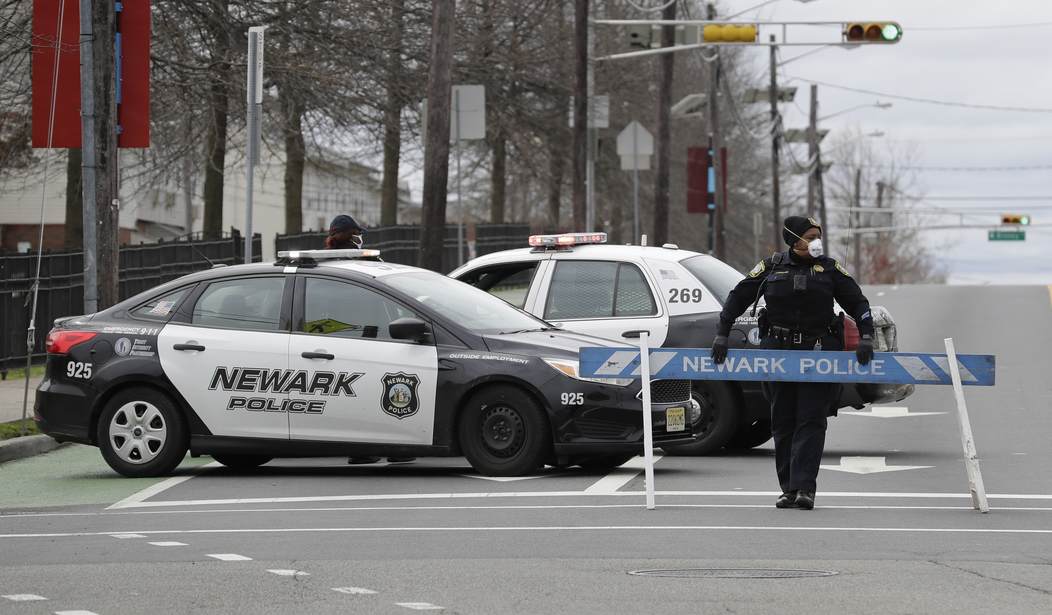Condensing 36 years of three people’s lives into a two-hour documentary is an almost impossible task, but Jon Alpert has done a brilliant job with his new film “Life of Crime: 1984-2004,” which is available for streaming on HBOMax. The film, which is both a followup and an updated compendium of two previous “Life of Crime” projects that debuted in 1989 and 1998, respectively, follows the ups and downs (mostly downs) of three residents of Newark, New Jersey as they progress from dabbling in drugs and shoplifting in the 1980s to armed robbery and heroin addiction in the 1990s and beyond. It is absolutely brutal and gut wrenching to watch at times, but it is also one of the most eye-opening experiences I’ve had in terms of understanding the role that drugs play in violent crime.
In fact, throughout “Life of Crime: 1984-2004,” you never really see a firearm, even though two of the film’s subjects end up behind bars on armed robbery charges. Guns simply aren’t the focus of the lives of Rob and Freddy. No matter how hardened they become, they’re not a part of “gun culture.” They are immersed in drugs instead. Shoplifting? Robbery? Armed robbery? Those are just means to an end, and the end is sticking a needle in their veins. The same goes for Deliris, the third subject of the film and Rob’s one-time girlfriend, who at one point listens to her 7 or 8-year old daughter plaintively ask “If you love me so much why is your hand on the door” before she leaves to walk the streets to earn enough money for her fix, with her daughter left alone to care for her even younger brother.
According to a 2017 Bureau of Justice report, about 40% of inmates convicted of property crimes and about 14% of those behind bars for violent crimes say they are in prison because they broke the law to feed their addiction. We tend to (or at least I do) tend to think of “drug-related crime” as the shootouts between drug dealers battling over a corner or beefing over turf, but a considerable amount of violent crime can also be traced back to those demanding drugs, not just those supplying them. And taken together, the buyers and sellers of deadly drugs from meth to fentanyl are responsible for a huge amount of violence in the United States.
It’s impossible to watch this film and come away believing that we’re winning the War on Drugs, especially when you see how readily available heroin and other drugs are even behind bars (at one point Freddy, who’s about six years into a ten-year sentence, admits that he’s only been clean for less than a year). But “Life of Crime” didn’t turn me into a bleeding-heart liberal who thinks that safe injection sites and decriminalizing opioids is the way to go. In fact, I was struck that being in prison was actually the best thing to happen to all three of the film’s subjects in terms of getting clean and sober. The problem came when they got out, and were once again subjected to the temptations on the street.
And the temptations are ever present. At one point Rob, who’s been clean and sober for a number of months, revisits his old neighborhood in Newark, and one of his old “friends” begins to goad him into starting up his habit once again. You can hear a small portion of his sales pitch at :17 in the trailer below.
“You got a little money. You wanna taste?”
Years of sobriety, of building up a broken life, can be wiped out with one moment of weakness and a five dollar bill. It’s one of the frustrating parts about watching this movie. I’m not sure I ever grew to really like any of Alpert’s subjects, but I was emotionally invested in them, and I did end up rooting for them to succeed; to be one of the few who manage to turn their lives around. And if I got annoyed, angry, and despaired at watching them fall off the wagon time and again, I can only imagine how devastating it must have been for their families, especially their kids.
While “Life of Crime” may have made me a little more understanding of the nature of addiction, it also made me want to carpet bomb the drug cartels who are responsible for flooding American streets with cheap and deadly heroin and fentanyl. There are a growing number of prosecutors who want to charge drug dealers with murder if one of their customers dies from a drug overdose, and I have to say it sounds pretty appealing after watching this documentary. In fact, charging heroin and fentanyl dealers with attempted murder for every sale sounds pretty good, or at least emotionally satisfying.
In a way, this movie has even helped me understand the appeal that gun control holds for some people. I get the mindset of “there’s this thing out there that’s killing people and if we just got rid of it than we’d all be safer.” I get it. I really do. It’s reassuring to think that we can stop thousands of senseless deaths if we just put the right laws in place.
The problem with that (besides the obvious issues like the fact that we have a right to keep and bear arms, that guns are used in self-defense far more often than the media ever reports, and that legitimately trying to take guns out of the hands of 100-million Americans instead of just fantasizing about it would rip the country apart) is that not only does banning something not get rid of it, changing the law doesn’t change human nature.
Heroin and fentanyl are banned outright in the United States. Everyone knows how dangerous these drugs are. And yet last year 100,000 Americans died from fatal drug overdoses. That’s about five times the number of Americans who were murdered by any means, and an increase of 30,000 people from just one year earlier. What’s more, a significant number of those homicides were also related to drugs in some way, on the part of both suppliers and demanders.
You want to cut down on “gun violence”? Great, so do I and every other gun owner I know. But after watching “Life of Crime: 1984-2004” I’m completely convinced that figuring out how to successfully combat the evils of drugs like heroin and fentanyl will do far more to reduce “gun violence” (not to mention drug overdose deaths) than the most unconstitutional of gun control proposals. I don’t think we’re having much luck in either reducing the supply or demand for these drugs at the moment, and I won’t claim to have any magic solutions, but if I can’t fix the problem, I can at least recommend an incredible documentary if you want to get a better understanding of what’s driving a great deal of the crime and violence in our country.










Join the conversation as a VIP Member